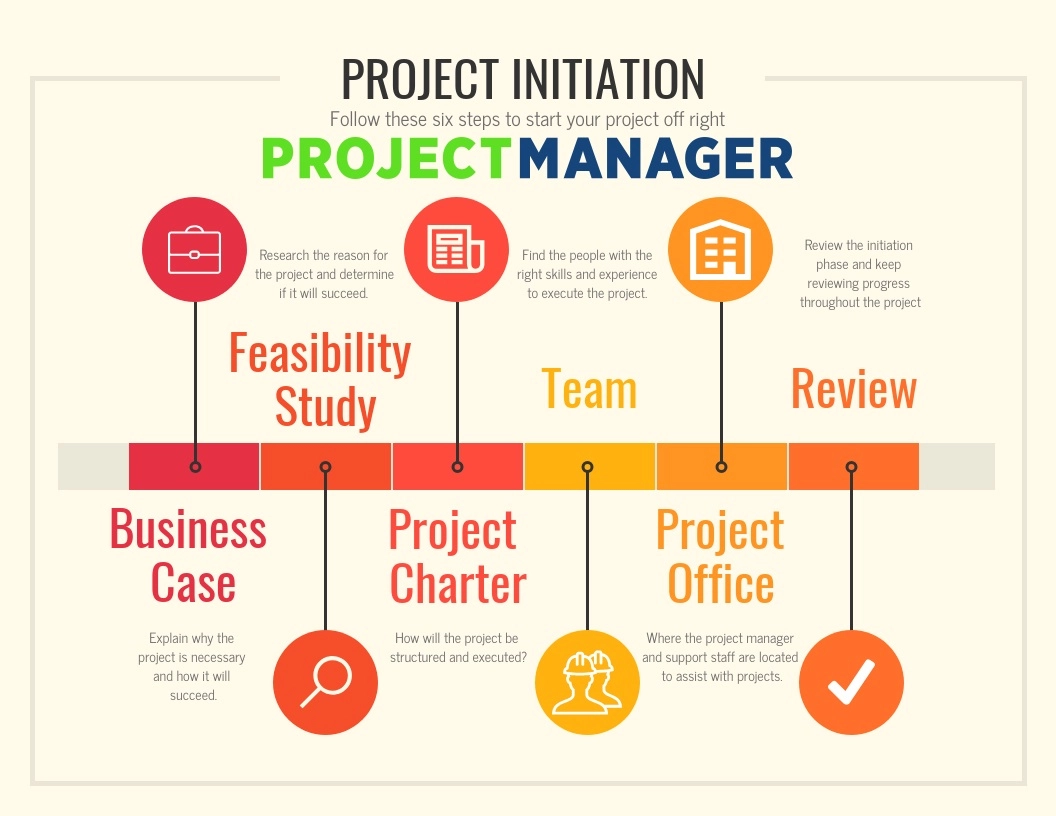The selection of the right project for future investment is crucial for the long-term survival of the organisation. Project selection is ultimately the responsibility of senior management, whose decision should be based on informative data. The selection will enable management to:
- Ensure the project will meet company goals and objectives.
- Rank mutually exclusive projects.
- Often the project manager is the person who lobbies for the selection of a project.
Projects flow out of problems or opportunities. At work, they can be initiated by higher management, clients or staff members. A project is born, so to speak, when someone reacts to the level of frustration surrounding a problem or sees an opportunity to move into a new venture. When a decision is made to do something about the problem or opportunity, a project exists – and, typically, someone is given the responsibility for carrying it out. That person becomes the project manager.
A project’s initiator is usually unclear about important aspects of the project. Project personnel tend to stress their own point of view during the stage of defining and structuring a project. If this set of personal biases and interests is left unchecked, disaster can result. However, disaster can be avoided by full discussion between the project manager, client and staff at the inception of a project. With a clear understanding of what is expected, the project manager will be better able to begin to define the project.
When the nucleus of a project team has been assembled, its first order of business should be to clarify the project and arrive at an agreement as to the project’s definition and scope, as well as the basic strategy for carrying it out. An orderly process can guide any manager through these steps. The following sequence of activities is useful in getting a project smoothly underway:
- Study, discuss and analyse
- Write the project definition
- Set the final objective
- List imperatives and desirables
- Generate alternative strategies
- Evaluate alternatives; and
- Choose a course of action.

It is critical for the team to spend adequate time, in the beginning, studying, discussing and analysing the project. This establishes a clear understanding of what you are dealing with. It may be necessary to do research to see how similar projects structure their approach, or what other patterns of past experience can contribute to project planning. The purpose of this activity is to be sure that you are addressing the right problem or pursuing a real opportunity.
When you are confident that you have a firm grasp of the situation, prepare a preliminary project definition. This preliminary definition will of course be subject to revision as additional information and experience are acquired.